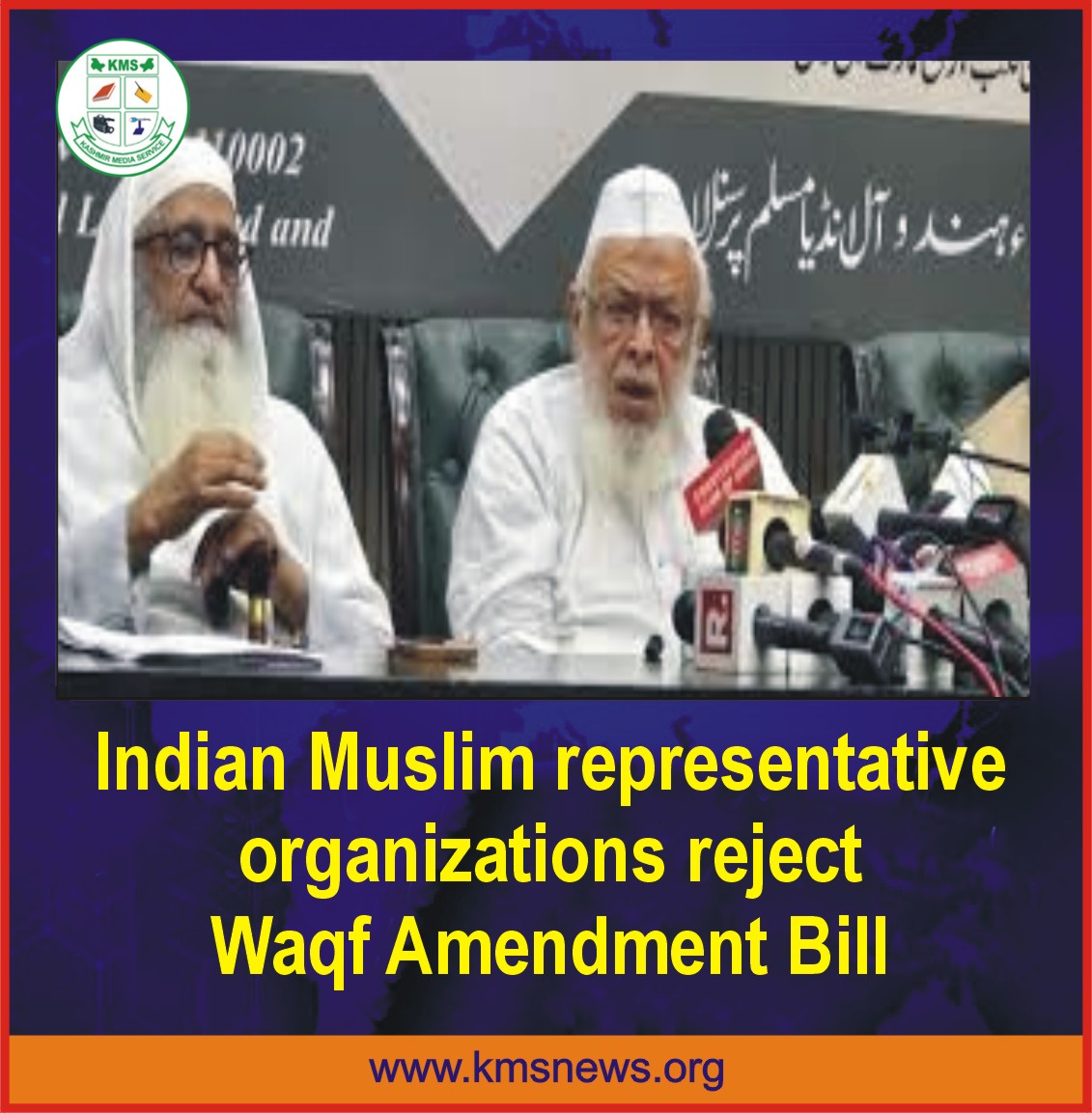Indian Muslim representative organizations reject Waqf Amendment Bill
Opposition parties reject inclusion of non-Muslims in waqf boards at 1st JPC meeting

New Delhi: Muslim representative organizations in India have outright rejected the Waqf Amendment Bill 2024, deeming it unconstitutional, undemocratic, unjust, and contrary to Sharia law.
According to Kashmir Media Service, leaders from the All India Muslim Personal Law Board, Jamiat Ulema-e-Hind, Jamaat-e-Islami Hind, and Jamiat Ahle Hadith expressed their opposition during a press conference in New Delhi. They argued that there is no need to amend the Waqf Act of 1995, asserting that the proposed changes would harm Waqf properties and strip the Waqf committees of their ownership. Maulana Khalid Saifullah Rehmani, President of the All India Muslim Personal Law Board, warned that if the amendment bill is passed, Waqf properties would be at risk, and Muslims could lose all their Waqf assets.
He criticized the bill for proposing that the Waqf Council include 13 non-Muslim members and the Waqf Board having 7 non-Muslim members, while giving complete authority over Waqf matters to the Collector. Rehmani questioned how it is possible for non-Muslims to make decisions on Sharia matters or for Muslim ulemas to make decisions on non-Muslim issues.
He further condemned the bill for paving the way for central government interference in Waqf affairs, which he said would not be accepted. Rehmani emphasized that Waqf properties are donations made by Muslims for charitable purposes, not the government’s.
Meanwhile, the first meeting of the Joint Parliamentary Committee (JPC) on the Waqf Amendment Bill was held yesterday. The meeting saw intense debate among members, lasting several hours, with opposition party representatives strongly opposing the bill, particularly the proposed inclusion of non-Muslim members in state waqf boards and the Central Waqf Council. The next meeting of the committee will be scheduled soon.








